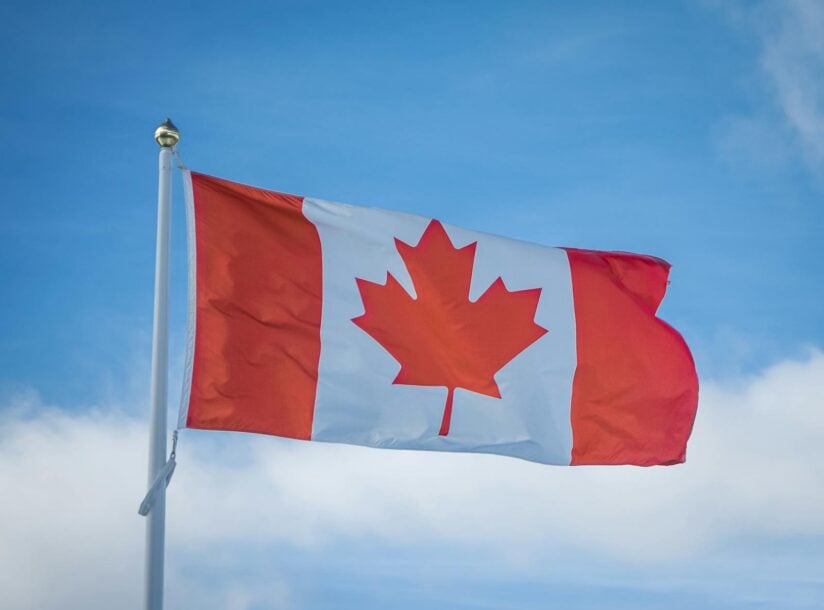How Long Can Debt Collectors Try to Collect in BC?

Collection agencies play a significant role in the realm of debt recovery. When traditional attempts to collect debts have been unsuccessful, creditors often turn to collection agencies to help them recover the owed funds. In British Columbia, these agencies are regulated by the Business Practices and Consumer Protection Act (BPCPA) and are required to adhere to strict guidelines to ensure fair and ethical practices in their operations.
The primary objective of collection agencies in British Columbia is to assist creditors in recovering unpaid debts while also respecting the rights and privacy of debtors. Collection agencies in British Columbia undertake a range of activities in pursuit of debt recovery. These activities can include contacting debtors through various communication channels, such as phone calls, letters, and emails, to negotiate repayment plans or settlements. They may also provide information and support to debtors regarding their outstanding debts and potential ways to resolve their financial obligations.
The role of collection agencies goes beyond mere communication with debtors. They often employ trained professionals who are skilled in negotiation, conflict resolution, and understanding the legal framework surrounding debt collection. It’s important to note that collection agencies must operate within the bounds of the law, ensuring they do not engage in aggressive, deceptive, or harassing tactics while pursuing debt recovery.
That all being said, if you’ve dealt with debt collectors in the past or if you’re currently on their radar, you know their tactics can be relentless and questionable, to say the least. A significant number of Canadians express instances of harassment, breaches of privacy, and uncertainty regarding the legality of the debt collection process.
So, let’s break down the top concerns our Licensed Insolvency Trustees get asked about collection agencies in BC to provide a better understanding of their constraints and your rights as a consumer.
1. How long can debt collectors try to collect in BC?
In British Columbia, there are regulations in place that outline how long debt collectors can attempt to collect on a debt. This period of time is known as the “statute of limitations.” Understanding this timeline is essential for both debtors and creditors, as it helps establish a reasonable timeframe within which debt collection actions can be taken.
The statute of limitations for debt collection in BC is generally set at two years from the date of the last payment or acknowledgment of the debt. This means that if you owe a debt and the creditor hasn’t received any payment or acknowledgment from you for a period of two years, they might lose their legal right to pursue collection through the court system. However, different types of debt might have different limitation periods, and there could be exceptions based on specific circumstances. These types of debt include CRA, ICBC, and student loan debt.
Certain actions, like making a partial payment or acknowledging the debt in writing, can reset the clock on the statute of limitations. So, if you’re dealing with debt, it’s a good idea to be aware of your interactions and communications with the creditor, as they can impact the timeline for debt collection efforts.
One last thing to note is that statute barred debt will still remain on your credit report for 6-7 years, and although these debts are protected from legal action and garnishment, debt collectors can continue to call you to collect.
We recommend speaking with a licensed insolvency trustee, like Smythe Insolvency, to ensure you have accurate and up-to-date information about debt collection time limits in British Columbia. A Licensed Insolvency Trustee will also be able to help you find a solution to your debt.
2. Can a debt collector call me at work?
Yes, debt collectors are generally allowed to contact you at your workplace, but there are certain limitations and rules in place to ensure that such communication is conducted fairly and respectfully. In British Columbia, debt collectors can contact your employer under specific circumstances:
Verification of Employment: Debt collectors can contact your employer to confirm your employment status, job title, and sometimes your income. This information helps them assess your ability to repay the debt and determine the most appropriate course of action.
Wage Garnishment: If a legal judgment has been obtained against you and the creditor has the legal right to garnish your wages, the debt collector may contact your employer to facilitate the wage garnishment process. Wage garnishment involves deducting a portion of your wages directly from your paycheck to repay the outstanding debt.
However, debt collectors are not allowed to disclose the details of your debt to your employer during these conversations. They must adhere to privacy and confidentiality rules, ensuring that your personal financial matters remain private.
3. Are collection agencies in British Columbia allowed to call me every single day, multiple times a day?
In British Columbia, there is no specific legal limit on the number of times a collection agency can call you, but there are regulations in place to ensure that these communications are conducted respectfully and without causing harassment. The regulations emphasize fair and reasonable communication practices.
Collection agencies are prohibited from engaging in harassment, using abusive language, or employing tactics that could be perceived as intimidating. This means that repeated calls throughout the day, especially if they become excessive and intrusive, could potentially be considered harassment and a violation of your rights.
It’s important to know that you have rights as a consumer when dealing with collection agencies. If you believe that the frequency of calls has become excessive or you feel harassed, you can take several steps to address the situation:
Request Written Communication: You can request that the collection agency communicates with you in writing only. This can help you maintain a clear record of their communications and reduce the frequency of phone calls.
Assert Your Rights: If you find the calls to be intrusive or harassing, it’s within your rights to communicate your preferences and concerns to the collection agency. They should respect your wishes and act accordingly.
Cease and Desist: If you believe that the calls have become excessive despite your attempts to address the situation, you have the right to send a written request asking the collection agency to cease further communication. Keep a copy of this request for your records.
File a Complaint: If you believe that a collection agency is consistently violating regulations and causing you undue stress, you can consider filing a complaint with the appropriate regulatory authorities. In British Columbia, the Consumer Protection BC oversees collection agency practices.
Remember that while collection agencies have the right to pursue unpaid debts, they must do so within the boundaries of the law and respect your rights as a consumer. If you find yourself overwhelmed by collection agency calls or facing financial difficulties, seeking advice from a professional, such as a Licensed Insolvency Trustee, can provide you with guidance on managing your debt and exploring potential solutions.
4. Can collection agencies in BC contact my friends and family?
Collection agencies in British Columbia are permitted to contact friends or family members. Their communication must be limited to obtaining contact information to reach you and they are absolutely not allowed to harass your friends, or your family members in their debt collection efforts. During communications with your friends or family members, collection agencies are prohibited from disclosing any details about the debt or identifying themselves as debt collectors. Their interactions should remain respectful and focused solely on obtaining contact information.
It’s important to note that if you’re dealing with a co-signed loan or debt, collection agencies may communicate with the co-signer about the debt and seek repayment. This is particularly applicable when the co-signer has a financial responsibility to fulfill the debt if the primary borrower defaults.
5. Why are debt collectors calling me?
Debt collectors may be calling you for a variety of reasons related to outstanding financial obligations. Here are some common scenarios that might lead to collection agency calls:
Unpaid Debts: If you have overdue payments on credit card balances, personal loans, medical bills, or other forms of debt, creditors may enlist collection agencies to recover the money owed.
Delinquent Bills: Late or missed payments on utility bills, phone bills, rent, or other regular expenses could trigger collection efforts. Service providers or landlords might involve collection agencies to collect the overdue amounts.
Defaulted Loans: If you have taken out loans, such as student loans, mortgages, or auto loans, and you’ve fallen behind on payments, lenders may employ collection agencies to recover the outstanding balances.
Unsettled Accounts: Accounts that have remained inactive or unsettled for an extended period might be assigned to collection agencies by creditors seeking to recover funds.
Charge-offs: After a certain period of non-payment, creditors may write off the debt as a loss and sell it to a collection agency at a reduced amount. The collection agency then pursues repayment from you.
Outstanding Judgments: If a creditor has taken legal action against you and obtained a court judgment, collection agencies might be tasked with enforcing the judgment and recovering the owed funds.
Recovery Efforts: In some cases, collection agencies might contact individuals to recover assets, such as repossessing a vehicle or foreclosing on a property, if repayment is not forthcoming.
It’s essential to verify the legitimacy of the debt and ensure that you’re dealing with a reputable collection agency. If you’re contacted by a collection agency, you have rights and options available to you. It’s a good idea to ask for written validation of the debt, understand your rights under the law, and explore potential repayment or negotiation solutions. A Licensed Insolvency Trustee can help you make informed decisions about how to address your debt situation.
6. Will calls from a collection agency lower my credit score?
Yes, calls and activities from a collection agency can indeed have a negative impact on your credit score. When a debt is turned over to a collection agency, it signals to credit reporting agencies that you have not been able to manage the debt as agreed upon. This negative information can significantly affect your credit score.
Here’s how the process generally works:
Debt Reported to Credit Bureaus: When a debt is handed over to a collection agency, they typically report this information to the major credit bureaus (Equifax and TransUnion in Canada).
Negative Impact on Credit Score: The presence of a debt in collections on your credit report can lower your credit score. This is because payment history and debt management are important factors in calculating your credit score. Having a debt in collections suggests that you have not fulfilled your financial obligations.
Length of Impact: The negative impact of a debt in collections on your credit score can persist for a considerable period, usually up to six years from the date of the last activity or payment on the account. Even if you pay off the debt or settle it with the collection agency, the record of the account in collections can remain on your credit report for several years.
It’s important to note that credit reporting practices can have slight variations between provinces and credit reporting agencies. Therefore, it’s crucial to stay informed about your credit report, monitor your financial activities, and take steps to address any debts or collections to minimize the impact on your credit score.
7. How do I stop collection agencies from contacting me?
Stopping debt collectors from calling requires understanding your rights, effective communication, and taking appropriate actions. Here are steps you can take to halt or reduce collection calls:
Understand Your Rights: Familiarize yourself with your rights as a consumer when dealing with debt collectors. This includes regulations that prevent harassment and protect your privacy.
Communicate in Writing: Send a written request to the collection agency asking them to cease all communication with you. This is often referred to as a “cease and desist” letter. Keep a copy of the letter for your records.
Certified Mail: When sending your written request, use certified mail with a return receipt requested. This way, you have proof that the letter was received by the collection agency.
Maintain Records: Keep thorough records of any communication you have with debt collectors. This includes notes on phone calls, messages, and any correspondence. Detailed records can be valuable if you need to dispute any actions taken by the debt collectors in the future.
Request Debt Verification: If you’re uncertain about the validity of the debt, you can request that the collection agency provide verification of the debt. They are required to provide information confirming the debt’s legitimacy.
Negotiate a Payment Plan: If the debt is valid but unaffordable, consider negotiating a payment plan with the collection agency. They may be willing to work out a reasonable repayment schedule that suits your financial situation.
Seek Professional Advice: If you’re dealing with persistent harassment or struggling with overwhelming debt, consider reaching out to a Licensed Insolvency Trustee (LIT) for guidance. LITs are the only professionals in BC authorized to provide debt relief solutions, including filing a consumer proposal or exploring bankruptcy options.
Consumer Proposal or Bankruptcy: A Licensed Insolvency Trustee can help you create a formal consumer proposal, which is a legally binding agreement to repay a portion of your debt over time. If your situation is more severe, they can also guide you through filing bankruptcy in BC, which provides a fresh financial start by eliminating most of your debts.
Remember, taking action to address your debt situation is crucial for your financial well-being. Don’t hesitate to assert your rights and seek professional assistance if needed. If you’re struggling with debt, book your free consultation with a Licensed Insolvency Trustee today. They can provide you with personalized advice and solutions tailored to your circumstances.


